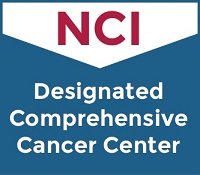Clinical Trials

At UMGCCC we offer opportunities to participate in clinical research trials that explore novel, cutting-edge cancer treatments. These trials give patients access to treatment interventions that may not be widely available elsewhere for several years.
Jump to: What Are Clinical Trials? | Preparing for a Clinical Trial | Clinical Trial Phases
How Clinical Trials Work
What Are Clinical Trials?
Clinical trials are research studies designed to find new and better ways to treat patients with cancer and other diseases.
Physicians and scientists conduct clinical trials to find out:
- Whether a newly developed treatment is safe and effective for cancer patients
- How and in what way is the new treatment best administered
- Whether the treatment is better than other treatments
Clinical trials may test new drugs, new approaches to using existing treatments or newly developed methods of treatment.
Preparing for a Clinical Trial
Clinical trials are unique studies in that they rely on the participation of patients to test the new therapies. They are conducted only after a long process of research on the new treatment has already been completed.
Before ever testing a new treatment with people, studies are performed in research labs and with animals to examine possible benefits and side effects. By the time the treatments is given to patients in a clinical trial, it has been under study for many months or years.
When planning a clinical trial, an investigator (usually a physician) must write a detailed plan that outlined both the background and purposes of the study and the exact way in which the study will be conducted. This plan or "protocol" details each step of treatment and care for patients in the study, and it must be approved by scientific review boards within the investigator's institution and within the organization that sponsors the study. The protocol for the study ensures that the patients in study receive appropriate treatment and high-quality care and that the research is conducted scientifically.
Clinical Trial Phases
Clinical Trial Phases are conducted in three phases, each aimed at answering a different research question. Each newly developed treatment must go through all three trial phases:
- Phase I trials: These first studies in people evaluate how a new drug should be given (for example, by mouth, injected into the blood, or injected into the muscle), how often, and in what dose. Phase I trials are the first tests of a new treatment in humans, so they usually include only a small number of patients, sometimes as few as a dozen.
- Phase II trials: A phase II trial continues to test the safety of the drug and begins to evaluate how well the new drug works. Phase II studies usually focus on a particular type of cancer. Like Phase I trials, they often include a limited number of patients.
- Phase III trials: These studies test a new drug, a new combination of drugs or anew surgical procedure in comparison to the current standard for treatment. Participants are usually assigned at random either to the standard treatment group or to the new treatment group (this process is called randomization). Phase III trials often enroll large numbers of people and may be conducted at many doctors' offices, clinics and cancer centers nationwide.
Looking for a Clinical Trial in Cancer?
Search our clinical trials database by topic (keyword), study number or investigator.


